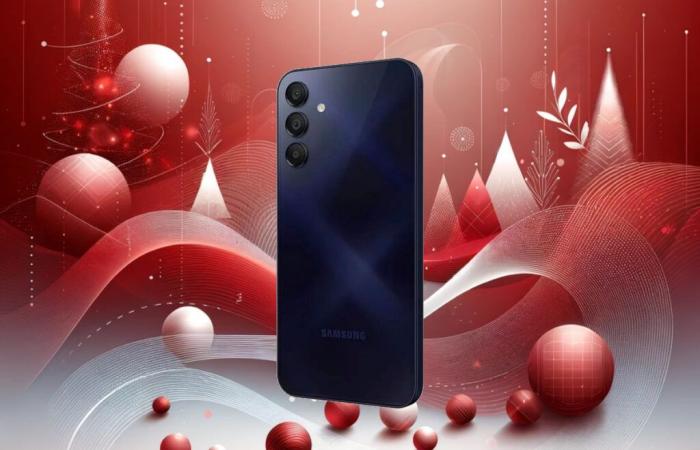The three smartphones offer very differentiated designs, marking their respective personalities. The Honor Magic6 Lite 5G sports an elegant style with its photo sensors integrated into a large circle on the back, a neat “clous de Paris” finish, and slightly curved edges.
It is available in black, green and orange faux leather finish, only on the brand's official website. The Samsung Galaxy A15 5G, for its part, focuses on refined minimalism: its photo sensors seem simply placed on the rear shell.
Its glossy finish with highlights comes in midnight blue, light blue and lime (yellow). With a slightly thicker profile, it remains classic and sober. Finally, the Xiaomi Redmi Note 13 5G stands out with its sensors positioned at the top left, minimalist but prominent. It comes in black, blue and white colors, with a modern and robust design thanks to Corning Gorilla Glass 5 protection.
In terms of dimensions, the Honor is the largest with a height of 163.6 mm, while the Xiaomi is the thinnest (7.6 mm) and the lightest at 174.5 grams. The Samsung, although more compact (160.1 mm), is the heaviest at 200 grams. On the resistance side, the Xiaomi benefits from IP54 certification, followed by the Honor certified IP53, while the Galaxy A15 does not have waterproof certification.
Which is more powerful and offers the best screen?
Under the hood, these models differ widely. The Honor Magic6 Lite 5G uses a Qualcomm Snapdragon 6 Gen 1 processor, accompanied by 8 GB of RAM and 256 GB of storage, but without the possibility of expansion via microSD. It offers solid performance for its range. The Samsung Galaxy A15 5G is powered by a MediaTek Dimensity 6100+, with only 4 GB of RAM, but it adds 4 GB of virtual memory. It also offers 128 GB of storage, expandable via a microSD card, which will appeal to those looking for more flexibility. The Xiaomi Redmi Note 13 5G, equipped with a MediaTek Dimensity 6080, matches the Honor with 8 GB of RAM and 256 GB of storage, while offering a microSD slot. In terms of power, the Honor Snapdragon remains slightly superior, followed by the Samsung Dimensity 6100+, then the Xiaomi Dimensity 6080.
On the screen side, the Honor and Xiaomi shine with their AMOLED panels with refresh rates of 120 Hz, offering smooth navigation. The Honor offers a large diagonal of 6.78 inches and a maximum brightness of 1200 cd/m², but it is the Xiaomi which impresses with 1800 cd/m² for better visibility in direct sunlight. The Samsung, despite its 6.5-inch AMOLED panel, is limited to 800 cd/m² and a frequency of 90 Hz, placing it behind on this criterion.
What configurations for photos and what connectivity?
For photography enthusiasts, the Honor and Xiaomi share the lead with a 108-megapixel main sensor. However, the Xiaomi gains in versatility thanks to its 8 megapixel ultra wide angle, compared to only 5 megapixels for the Honor. The Samsung, with a 50-megapixel main sensor, is more modest, but sufficient for everyday needs.
For selfies, the Xiaomi and Honor offer 16-megapixel sensors, while the Samsung is limited to 13-megapixels. In terms of overall image quality, the Xiaomi takes the advantage thanks to its balanced configuration and its better contrast management (HDR compatibility).
In terms of connectivity, all models are 5G compatible and have Bluetooth 5.3. The Honor and the Samsung integrate an audio jack port, while the Xiaomi stands out for the presence of an infrared transmitter. On the fingerprint reader side, that of the Honor is under the screen, compared to the side button for the other two models.
What about autonomy and charging capabilities?
In terms of battery capacity, the Honor Magic6 Lite 5G stands out with 5300 mAh, compared to 5000 mAh for its competitors. This theoretically ensures better autonomy, although this strongly depends on usage. For charging, the Honor supports a power of 35 watts, followed closely by the Xiaomi with 33 watts, while the Samsung is limited to 25 watts. None of these models offer wireless charging.






